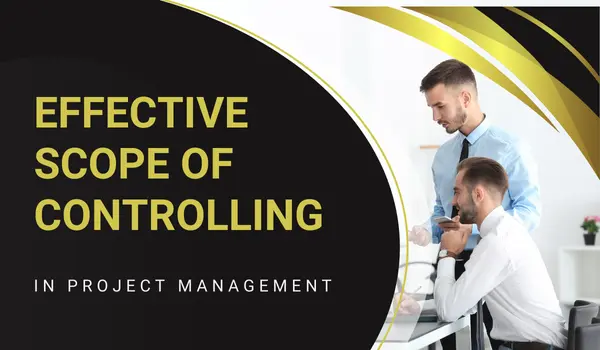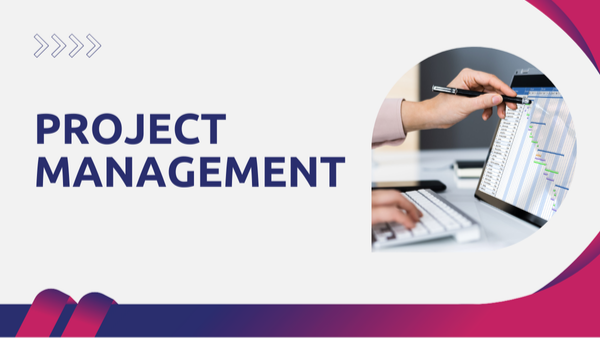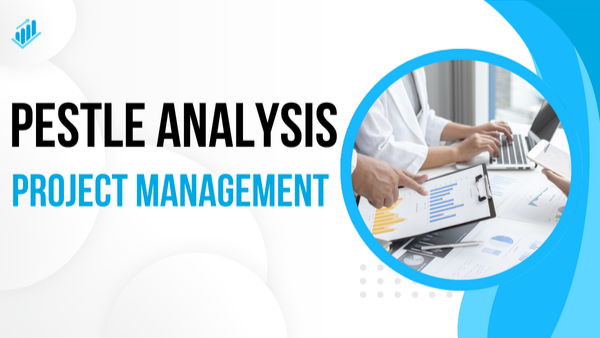
Effective Scope of Controlling in Management: Strategies for Success
Have you ever felt like your business is a runaway train, speeding down the tracks with no clear destination? You're not alone. Many managers struggle with keeping their organizations on track and moving in the right direction. That's where controlling comes in it's like the brakes and steering wheel for your business.
Table of Contents
- What is controlling in management?
- The controlling process: your roadmap to success
- 1. set clear standards
- 2. measure actual performance
- 3. compare performance to standards
- 4. take corrective action
- Strategies for effective controlling
- Focus on key performance indicators (kpis)
- Use technology to your advantage
- Empower your team
- Balance control and flexibility
- Learn from mistakes
- Common controlling pitfalls (and how to avoid them)
- Faq
- Wrapping up: your path to management success
In this blog post, we'll dive into the world of controlling in management and show you how to use it effectively to drive your business towards success.
What is Controlling in Management?
Controlling is one of the four fundamental functions of management, alongside planning, organizing, and leading. It's the process of making sure that your business activities align with your plans and goals. Think of it as the GPS of your business journey—it helps you stay on course and make adjustments when needed.
But why is controlling so important? Well, without it, your carefully laid plans might go off the rails. Controlling helps you:
-
Spot problems before they become disasters
-
Keep your team focused on what matters
-
Make sure resources are used wisely
-
Learn from past mistakes and improve future performance
Now that we know what controlling is and why it matters, let's look at how to make it work for you.
The Controlling Process: Your Roadmap to Success
Controlling isn't a one-time thing—it's an ongoing process that keeps your business running smoothly. Here's a step-by-step guide to effective controlling:
1. Set Clear Standards
First things first—you need to know what "good" looks like for your business. Set clear, measurable standards for performance in all areas of your organization. These could be financial targets, quality benchmarks, or customer satisfaction scores.
For example, if you run a coffee shop, your standards might include:
-
Serving customers within 3 minutes of their order
-
Maintaining a 4.5-star rating on review sites
-
Keeping food costs below 30% of revenue
2. Measure Actual Performance
Once you've set your standards, it's time to see how you're doing. Collect data on your actual performance using tools like:
-
Financial reports
-
Customer surveys
-
Employee feedback
-
Quality control checks
Make sure you're gathering accurate, up-to-date information. After all, you can't improve what you don't measure!
3. Compare Performance to Standards
Now comes the moment of truth—how do your actual results stack up against your standards? This step is all about identifying gaps between where you are and where you want to be.
Let's go back to our coffee shop example. If your goal was to serve customers within 3 minutes, but your average serve time is 5 minutes, you've identified a performance gap that needs addressing.
4. Take Corrective Action
Here's where the rubber meets the road. Once you've identified performance gaps, it's time to take action to close them. This might involve:
-
Adjusting processes
-
Providing additional training
-
Reallocating resources
-
Updating your goals if they're unrealistic
In our coffee shop scenario, you might decide to add another barista during peak hours or simplify your menu to speed up service.
Strategies for Effective Controlling
Now that we've covered the basics, let's look at some strategies to make your controlling efforts more effective:
Focus on Key Performance Indicators (KPIs)
You can't control everything, so focus on what really matters. Identify the key metrics that drive your business success and monitor them closely. For a retail store, these might include:
-
Sales per square foot
-
Average transaction value
-
Customer retention rate
By focusing on these critical few metrics, you can avoid getting bogged down in less important details.
Use Technology to Your Advantage
In today's digital age, there's no excuse for flying blind. Use technology to gather and analyze data in real-time. This might include:
-
Point-of-sale systems that track sales and inventory
-
Customer relationship management (CRM) software to monitor customer interactions
-
Project management tools to track progress on key initiatives
With the right tools, you can spot trends and issues before they become major problems.
Empower Your Team
Controlling isn't just a job for managers—it's everyone's responsibility. Get your team involved by:
-
Sharing performance data openly
-
Encouraging employees to suggest improvements
-
Recognizing and rewarding good performance
When everyone feels ownership over the results, you'll see better performance across the board.
Balance Control and Flexibility
While controlling is important, don't become so rigid that you can't adapt to changing circumstances. Leave room for innovation and experimentation. Sometimes, the best ideas come from unexpected places.
Learn from Mistakes
No one gets it right all the time. When things don't go according to plan, treat it as a learning opportunity. Conduct a thorough analysis of what went wrong and how you can prevent similar issues in the future.
Common Controlling Pitfalls (and How to Avoid Them)
Even with the best intentions, controlling can go wrong. Here are some common pitfalls to watch out for:
Micromanagement
Controlling doesn't mean breathing down your employees' necks. Too much control can stifle creativity and motivation. Instead, set clear expectations and give your team the autonomy to meet them.
Analysis Paralysis
It's easy to get caught up in gathering and analyzing data. But remember, the goal is to take action, not just collect information. Set time limits for your analysis and be prepared to make decisions with imperfect information.
Ignoring the Human Element
Numbers are important, but don't forget about the people behind them. Make sure your controlling efforts take into account employee morale, work-life balance, and personal growth.
Focusing Only on the Short Term
While it's important to meet short-term goals, don't lose sight of your long-term vision. Make sure your controlling efforts align with your overall strategy and don't sacrifice long-term success for short-term gains.
FAQ
Q. What is the controlling function in management?
A. The controlling function in management involves monitoring and evaluating actual performance against predetermined standards to ensure organizational goals are met. It includes setting performance standards, measuring actual performance, comparing it with the standards, and taking corrective actions if necessary.
Q. Why is controlling important in management?
A. Controlling is essential as it helps organizations achieve their objectives by identifying deviations from plans, ensuring efficient use of resources, maintaining discipline, and improving overall performance through systematic evaluation.
Q. What are the steps involved in the controlling process?
A. The controlling process involves four key steps:
- Setting performance standards
- Measuring actual performance
- Comparing actual performance with standards
- Taking corrective actions to address discrepancies.
Q. How does controlling relate to planning?
A. Controlling is closely linked to planning. While planning sets the direction and objectives, controlling monitors the execution of these plans, ensuring that activities align with organizational goals.
Q. What types of control exist within management?
A. There are three main types of control:
Feedforward Control: Prevents problems before they occur.
Concurrent Control: Monitors ongoing activities in real-time.
Feedback Control: Assesses completed activities to improve future performance.
Q. What are some limitations of the controlling function?
A. Limitations of controlling include challenges in setting quantitative standards, potential resistance from employees, difficulties in rapidly changing environments, and the risk of stifling creativity with excessive control.
Q. How does controlling help in decision-making?
A. Controlling provides managers with vital information on performance gaps between expected and actual results. This helps in making informed decisions regarding resource allocation, strategy adjustments, and operational improvements.
Q. What role does employee motivation play in controlling?
A. Effective controlling enhances employee motivation by establishing clear performance standards and providing feedback. Recognizing and rewarding employees for meeting standards can boost engagement and productivity.
Q. Is controlling a one-time activity?
A. No, controlling is an ongoing process that requires regular monitoring and adjustments based on changing circumstances or goals. It continuously ensures alignment with organizational objectives.
Q. Can controlling be applied in non-business organizations?
A. Yes, controlling principles apply beyond businesses to non-profits, educational institutions, and government agencies. The focus remains on achieving specific goals through systematic monitoring and corrective actions.
Wrapping Up: Your Path to Management Success
Controlling in management might sound dry, but it's the secret sauce that can take your business from good to great. By setting clear standards, measuring performance, and taking corrective action, you can keep your business on track and moving towards success.
Remember, effective controlling is an ongoing process, not a one-time event. It requires commitment, communication, and a willingness to adapt. But with the right approach, you can turn controlling into your superpower, helping you navigate the challenges of business with confidence and skill.
So, are you ready to take control of your business's future? Start by identifying your key performance indicators, setting clear standards, and involving your team in the process. With time and practice, you'll develop a controlling system that drives your business towards its goals, one step at a time.
Your business's success story is waiting to be written—and with effective controlling, you'll be holding the pen. So go ahead, take charge, and steer your business towards the success it deserves!

About Anita Ankam
Anita Ankam – Expert Project Management Instructor
Anita Ankam is a highly experienced and certified project management instructor, specializing in globally recognized methodologies such as PMP®, PMI-ACP®, DASM®, and DASSM®. With an extensive academic background, including an MBA and MSc, Anita holds multiple industry-leading certifications, including PRINCE2, PRINCE2 Agile Practitioner, CSM, ASM, ITIL, and Six Sigma Black Belt.
As an authorized training instructor, Anita has guided countless professionals in mastering project management frameworks and agile practices. Know more.
Related Posts

Featured Links
Contact us
- PMP® Certification Course |
- CAPM Certification Course |
- PMP Certification Training in Mumbai |
- PMP Certification Training in Pune |
- PMP Certification Training in Hyderabad |
- PMP Certification Training in Delhi |
- PMP Certification Training in Chennai |
- PMP Certification Training Course in Ahmedabad |
- PMP Certification Training Course in Bangalore |
- PMP Certification Training Course in Bhubaneswar |
- PMP Certification Training Course in Chandigarh |
- PMP Certification Training Course in Gandhinagar |
- PMP Certification Training Course in Faridabad |
- PMP Certification Training Course in Dombivli |
- PMP Certification Training Course in Coimbatore |
- PMP Certification Training Course in Ghaziabad |
- PMP Certification Training Course in Gurgaon |
- PMP Certification Training Course in Indore |
- PMP Certification Training Course in Jaipur |
- PMP Certification Training Course in Mysore |
- PMP Certification Training Course in Lucknow |
- PMP Certification Training Course in Kolkata |
- PMP Certification Training Course in Kochi |
- PMP Certification Training Course in Nagpur |
- PMP Certification Training Course in Navi Mumbai |
- PMP Certification Training Course in Patna |
- PMP Certification Training Course in Pimpri |
- PMP Certification Training Course in Vadodara |
- PMP Certification Training Course in Trivandrum |
- PMP Certification Training Course in Thane |
- PMP Certification Training Course in Surat |
- PMP Certification Training Course in Noida |
- PMP Certification Training Course in Visakhapatnam |
- PMP® Certification Training Course in Doha |
- PMP Certification Training in New York |
- PMP Certification Training Course in Chicago |
- PMP Certification Training in Austin |
- PMP Certification Training in Minneapolis |
- PMP Certification Training in Atlanta |
- PMP Certification Training in Dallas |
- PMP Certification Training in San Diego |
- CAPM Certification Training in Mumbai |
- CAPM Certification Training in Bangalore |
- CAPM Certification Training in Hyderabad |
- CAPM Certification Training in Delhi |
- CAPM Certification Training in Pune |
- CAPM Certification Training in Chennai |
- CAPM certification Training in Kolkata |
- CAPM certification Training in Gurgaon |
- CAPM certification Training in Noida |
- CAPM Certification Training in Ahmedabad |
- PMI Certified Professional in Managing AI (PMI-CPMAI)™ |
- PMI-RMP - PMI Risk Management Professional |
- PMI-PMOCP - PMI® Project Management Office Certified Professional
- AZ-900: Microsoft Azure Fundamentals |
- AZ-104: Microsoft Azure Administrator |
- AZ-204: Developing Solutions for Microsoft Azure |
- AZ-305: Designing Microsoft Azure Infrastructure Solutions |
- AZ-400: Designing and Implementing Microsoft DevOps Solutions |
- AZ-500: Microsoft Azure Security Technologies |
- AI-900: Microsoft Azure AI Fundamentals |
- DP-900: Microsoft Azure Data Fundamentals |
- CLF-C02: AWS Certified Cloud Practitioner |
- GCP-FC: Cloud Digital Leader |
- GCP-ACE: Associate Cloud Engineer |
- GCP-PCA: Professional Cloud Architect |
- GCP-PCD: Professional Cloud Developer |
- GCP-PCE: Professional Cloud DevOps Engineer |
- GCP-PDE: Professional Data Engineer |
- GCP-PCNE: Professional Cloud Network Engineer |
- GCP-PCSE: Professional Cloud Security Engineer |
- GCP-ML: Professional Machine Learning Engineer |
- GCP-PBA: Professional Business Intelligence Analyst |
- DP-100: Designing and Implementing a Data Science Solution on Azure |
- DP-203: Data Engineering on Microsoft Azure
- PMP® is a registered mark of the Project Management Institute, Inc.
- CAPM® is a registered mark of the Project Management Institute, Inc.
- PMI-ACP® is a registered mark of the Project Management Institute, Inc.
- Certified ScrumMaster® (CSM) ia a registered trademark of SCRUM ALLIANCE®
- While we strive to ensure that all prices listed on our website are accurate, we reserve the right to modify them at any time without prior notice.
Copyright © Certifyera Consulting Services. All Rights Reserved | Designed and Developed by WebAnaya


